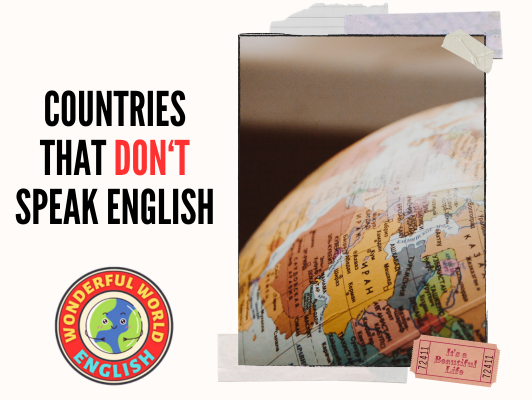Contents
Toggle
Meet David De’ Ath, founder, editor, and writer at Wonderful World English. With his extensive background as an English teacher, David provides valuable insights and practical tips on ESL for students and teachers alike.
English is recognized as a global lingua franca, connecting people across continents for business, education, and cultural exchange.
The ubiquity of English in international arenas often overshadows the reality that there are numerous countries where English is sparingly used or may not even be the preferred second language.
Exploring these nations illuminates the vast linguistic diversity worldwide and reveals the complexities of language proficiency and communication on the global stage.
The global distribution of English speakers is uneven, with high proficiency generally found in countries with historical ties to the English-speaking world or those that have embraced English for economic reasons.
However, that leaves a significant part of the world where English is neither spoken as a native language nor widely understood as a second language.
Factors like native language preservation, language policy, and language’s cultural significance contribute to the varying levels of English proficiency worldwide.
Examining the nations where English is not dominant offers insights into how different societies navigate communication in a multilingual world and the role English plays within their borders.
Key Takeaways
- Despite not being universally spoken, English is the primary means of international communication.
- Countries exhibit varying English proficiency levels, influenced by cultural, economic, and legislative factors.
- The balance between English and native languages presents both challenges and opportunities in our interconnected world.

Global Distribution of English Speakers
The English language encompasses a vast and varied presence around the globe.
Its status in different regions ranges from a primary language to one of limited use, influenced by historical, educational, and political factors.
Status of English in Europe
In Europe, the Netherlands and Denmark boast some of the highest English proficiency levels, with a significant portion of their populations able to communicate effectively in English.
Most European countries recognize English as either a primary foreign or a secondary language, a common medium in business and academia.
In France and Germany, English is widely taught in schools, although it’s not the predominant language socially.
For some insights into the most English-proficient countries within the EU, check out the guide below!
Related: English-Speaking Countries in the EU – Top 10
English in Asia
Singapore and the Philippines are notable for their high English proficiency in Asia.
In contrast, despite its large population, China displays varying levels of English speaker distribution, with more proficiency found in urban areas.
In Malaysia and Pakistan, English serves as an official language and plays a crucial role in governance.
Regions like Hong Kong, with the widespread use of English, reflect the legacy of British influence, while Vietnam, Thailand, and Kazakhstan are increasing English language education to boost global integration.
For more insights into the most English-proficient countries in Asia, the guide below has it all!
Related: What Asian Countries Speak English? – Full Guide
English Use in Africa
In Africa, Nigeria and South Africa have significant numbers of English speakers due to their colonial histories and use of English in official capacities.
Conversely, countries like The Gambia, Algeria, and Morocco largely speak Arabic and other indigenous languages, with English less predominant.
Cameroon is bilingual, with both French and English as official languages.
Ghana is among the cheapest English-speaking countries in the world, with a low cost of living and a relatively good quality of life.
To discover the cheapest English-speaking countries to live in the world, check out the guide below!
Related: Cheapest English-Speaking Countries to Live in (Top 6)
English Presence in South America
While South America is predominantly Spanish and Portuguese-speaking, English is increasingly being taught in schools, particularly in Brazil and Argentina.
However, the proficiency levels are not as high as in European or Asian counterparts, and in countries like Venezuela, English is less prevalent.
English Speakers in Oceania
Oceania presents a mixed picture, with Australia and New Zealand being primarily English-speaking nations.
In contrast, countries like Papua New Guinea exhibit a high linguistic diversity, with English being one of the official languages.
Small island nations often have local languages, with English often positioned as a language for international communication.
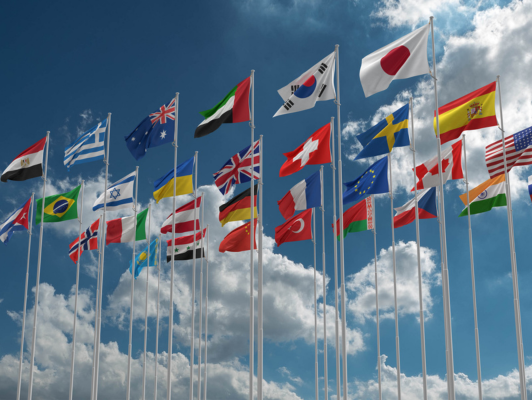
Non-English Speaking Countries
While English has become a global lingua franca, many countries around the world primarily use other languages within their borders.
This section explores various nations and regions where languages such as French, Spanish, Arabic, Mandarin, Russian, Portuguese, and German are the main modes of communication.
Countries with French as an Official Language
French is not only the official language of France but also holds official status in several other countries, including Luxembourg and numerous African states.
In France, French permeates every aspect of public life, while in Luxembourg, it shares the spotlight with German and Luxembourgish.
The influence of French in Africa is extensive, with countries like Morocco and many others in West Africa using it as a primary language for government, education, and commerce.
Countries with Spanish Communication
Spanish is a dominant language, notably in Spain and much of Latin America.
In Argentina and Guatemala, Spanish is the principal language of politics and society.
Beyond its European roots, Spanish is the de facto official language with wide usage in day-to-day communication, media, and education in these nations.
Countries Where Arabic is Predominant
Arabic is the key language in the Middle East and North Africa, with countries such as Egypt, Oman, Kuwait, and Iraq using different dialects.
Arabic’s usage extends from daily conversation to official state matters.
For example, Arabic has a significant role in every facet of life in Egypt, reflecting the country’s rich cultural heritage.
Arabic-speaking countries offer some of the highest salaries for English as a Second Language (ESL) teachers in the world.
The guide below provides a list of the most affordable countries to teach English, where teachers live awesome lives while earning great salaries.
Related: 7 Most AFFORDABLE Countries for Teaching English Abroad
Predominance of Mandarin in Asia
China‘s main language is Mandarin, which is the most spoken language in the world.
Outside of China, Mandarin is also spoken in communities throughout Southeast Asia, including Laos.
It is essential for government, education, and media.
Russian-Speaking Regions
In Russia, and specifically in the capital city of Moscow, Russian is not just the official language but also an integral part of the country’s identity.
Russian is also widely spoken in some parts of Eastern Europe and Central Asia, serving as an official language or a lingua franca.
Portuguese-Speaking Countries
Portugal is the birthplace of the Portuguese language, which then spread to various parts of the world, including Brazil.
In Brazil, Portuguese is the sole official language used in all realms of public and private life.
Use of German Languages in Europe
While Germany is naturally the heartland of the German language, other countries such as Austria and Luxembourg also use German in official capacities.
In Switzerland, German is one of the four official languages, highlighting the country’s linguistic diversity.
Germany’s influence on language extends to communities in Italy, where German is spoken in regions like South Tyrol.

English as a Second Language
In the landscape of global communication, English serves as a pivotal second language.
Its prevalence is often measured by standardized metrics and historical influences.
English Proficiency Index
The EF English Proficiency Index (EPI) is the benchmark for evaluating the average level of English language skills among non-native speakers in various countries.
This index ranks countries based on millions of individuals’ test data, offering a comparative analysis of English fluency.
Countries such as the Netherlands score remarkably high, demonstrating the depth of English proficiency within their populations.
English Fluency in Non-Native Countries
Fluency in English among non-native countries varies widely, with certain states, like Singapore, having a significant proportion of their populations competent in English.
Language learning platforms, such as Duolingo, contribute by providing accessible means for individuals to enhance their English skills.
More than just a tourist necessity, English fluency influences economic opportunities and integration into the global marketplace.
Impact of the British Empire on English Distribution
The expansion of the British Empire laid the groundwork for the widespread distribution of English.
As the empire extended over various continents, English became an administrative language and a key component of colonial education systems.
This historical context has led to English being an official language in former British colonies despite not being the native tongue of the majority.
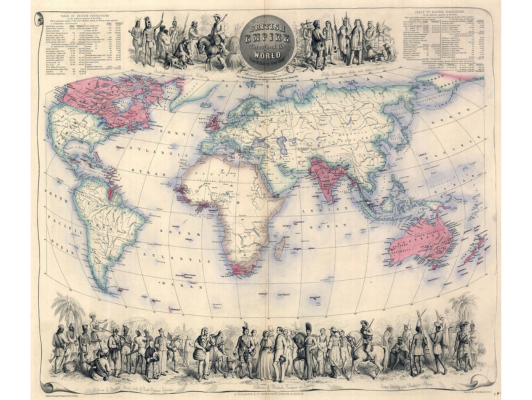
Economic and Cultural Impact of English
English bridges global commerce, science, and tourism, influencing economic development and cultural exchange worldwide.
English in International Business
English is widely recognized as the lingua franca of international business.
In countries like Guyana and Liberia, where English is an official language, businesses often have a competitive advantage in global markets.
In contrast, non-English-speaking regions must invest in language training to equip their workforce with the necessary communication skills.
For example, in European countries, those with higher English proficiency, like Ireland and Luxembourg, often see more robust international trade and economic ties.
Multinational companies frequently have headquarters in these nations, capitalizing on the widespread use of English in business dealings.
English in Science and Education
In the realm of science and higher education, English is the primary language for publications and academic discourse.
This dominance has implications for the dissemination of knowledge and collaboration across borders.
Nations like Turkey and Greece, which may not use English as a first language, nonetheless recognize its importance in the sciences; they encourage English proficiency to engage fully with the global scientific community.
Educational institutions from non-English-speaking countries strive to include English in their curricula, understanding its value for students’ future academic and professional opportunities.
Being fluent in English can significantly expand access to scientific materials, research collaborations, and educational resources.
English and Tourism Industry
The tourism industry heavily relies on English to cater to international visitors.
English allows countries such as Thailand and Guatemala, with their popular tourist destinations, to provide services to a diverse clientele.
Hotel staff, tour operators, and English-language informational materials are vital in cities like Moscow and Puerto Rico, making travel experiences smoother and more enjoyable.
Countries like Cameroon, which lists English as one of its official languages, benefit from the ability to attract visitors from English-speaking nations.
Promotional materials, signs, and services in English can significantly enhance the tourism experience and, in turn, boost economic growth.

Language Policy and Legislation
Language policies and legislation define a nation’s linguistic framework and play a pivotal role in shaping communication within societies.
These legal structures impact the populace, affecting daily communication, educational systems, and international relationships.
National Laws on Official Languages
Nations enact laws specifying official languages to standardize government operations and public life.
Countries like Iran and Saudi Arabia designate their national language as the sole official language, which is reflected in all governmental and legal conduct.
For instance, Kazakhstan has recognized Kazakh as its state language while still allowing Russian to be used officially to accommodate its diverse population.
Language Education Policies
Countries’ approaches to language education vary, often mirroring the linguistic diversity and political priorities of the region.
For example, in some nations where English isn’t widely spoken, such as Laos, there may be a lesser emphasis on English in the curriculum.
Conversely, Saudi Arabia and Kuwait may incorporate English language education as part of their strategy to engage more effectively with the global economy, indicating a more pragmatic approach to language learning despite the nations’ prioritization of their official language in legislation.
Impact of United Nations on Language Distribution
The United Nations plays a significant role in advocating for linguistic diversity and multilingualism.
This is evident in surveys and reports emphasizing language’s importance in development and cultural preservation.
The UN’s influence fosters cross-cultural dialogue and cooperation, promoting respect for mother tongues and learning additional languages, as seen in educational policy shifts in multiple countries.
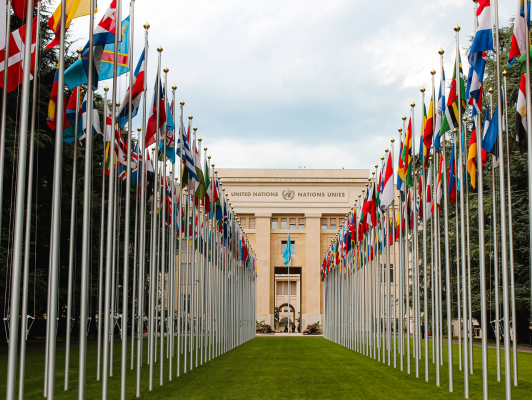
Challenges and Opportunities in Multilingual Societies
One can observe a complex interplay between language and socio-economic dynamics in multilingual societies.
Distinct communication patterns in non-English speaking regions impact both local and international interactions, while language skills facilitate or impede global mobility and trade.
Communication Barriers in Non-English Speaking Regions
In regions where English is not the primary language of communication, tourists and business travelers often face difficulties.
Hotels, for example, must employ multilingual staff or integrate translation technology to ensure clear communication with guests.
Language barriers can also affect how tourists experience destinations, as vital information may be misunderstood or inaccessible.
Language Skills and Global Mobility
Speaking multiple languages is increasingly essential in today’s globalized world.
Professionals with strong language skills can find better employment opportunities and are often more sought after by international firms.
In countries that don’t predominantly speak English, being multilingual can markedly enhance individuals’ global mobility.
Leveraging Multiple Languages for Trade and Diplomacy
Trade and diplomacy thrive on clear and effective communication. Countries rich in linguistic diversity often have an advantage when forging international relations.
They can establish trust more readily and engage in negotiations that respect their partners’ language and culture, leading to more nuanced and successful trade agreements.
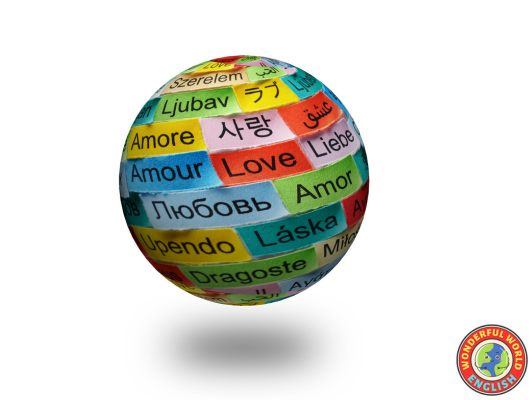
Technological Influence on Language
Technology is altering the landscape of language learning and preservation, bringing about a proliferation that reaches beyond the English-speaking world.
It fosters new platforms for learning, assists in saving languages at risk, and influences the spread of English through online communication.
Language Learning Applications
Duolingo and similar applications have revolutionized the way individuals learn new languages.
These platforms offer intuitive, gamified learning experiences, making a vast array of languages accessible to a global audience.
For example, apps like Duolingo provide lessons in over 30 languages, contributing to language diversity and aiding learners who may not have access to traditional language education.
With recent advances in the realm of Artificial Intelligence (AI), language learners everywhere are now taking advantage of the latest AI-powered tools.
For a guide on the BEST current AI-powered tools for English learners, check out the guide below!
Related: Best AI-Powered Tools for Learning English (Top 5)
Technology and Language Preservation
Technology also plays a crucial role in preserving endangered languages.
Digital tools enable the documentation and sharing of languages facing extinction.
Multimedia resources like databases and mobile applications help speakers keep their linguistic traditions alive.
Moreover, these platforms allow linguists and communities to collaborate internationally, providing a means to support and revitalize linguistic heritage.
Online Communication and English Penetration
Online communication platforms have significantly contributed to English becoming a lingua franca of the digital age.
Social networks, forums, and professional environments often operate in English, encouraging non-English speakers to learn and use the language.
This penetration of English is evident in the international collaboration and exchange of ideas across borders, pushing forward a globalized communication landscape.

Conclusion
This guide explores English’s role as the global lingua franca, highlighting its importance in international communication despite not being universally spoken.
It examines the uneven global distribution of English proficiency, influenced by historical, economic, and cultural factors.
The text acknowledges the linguistic diversity worldwide by exploring regions where English is not the dominant language, revealing the complexities of multilingual communication.
It discusses the impact of English on international business, science, education, and tourism, emphasizing its role in global commerce and cultural exchange.
Additionally, this guide considers the challenges and opportunities in multilingual societies, the role of technology in language learning and preservation, and the increasing penetration of English in online communication.
While English facilitates global interactions, the piece stresses the value of linguistic diversity and multilingualism in our interconnected world.
We hope you found value in this information.
Have a wonderful day!
Image Attribution: All images licensed via canva.com

